
The Road to the CPA: CPA Candidates Share Their Story AZ CPA May/June 2024 The Arizona Society of Certified Public Accountants y www.ascpa.com
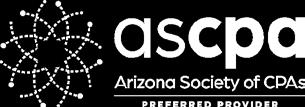
CPACharge has made it easy and inexpensive to accept payments via credit card. I’m getting paid faster, and clients are able to pay their bills with no hassles.
– Cantor Forensic Accounting, PLLC
Trusted by accounting and tax professionals nationwide, CPACharge is a simple, web-based solution that allows you to securely accept client credit and eCheck payments from anywhere.
22% increase in cash flow with online payments
65% of consumers prefer to pay electronically
62% of bills sent online are paid in 24 hours



AL: $3,000.00

Get started with CPACharge today
cpacharge.com/ascpa
***
CPA
PAY
CPACharge is a registered agent of Wells Fargo Bank N.A., Concord, CA, Synovus Bank, Columbus, GA., and Fifth Third
customers experienced 22% increase on average in revenue per firm using online billing solutions
AffiniPay
+
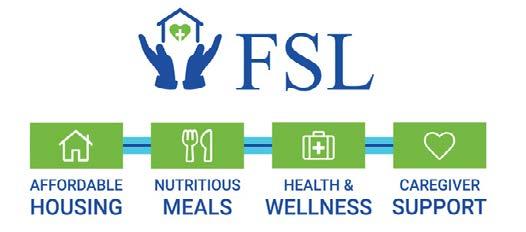


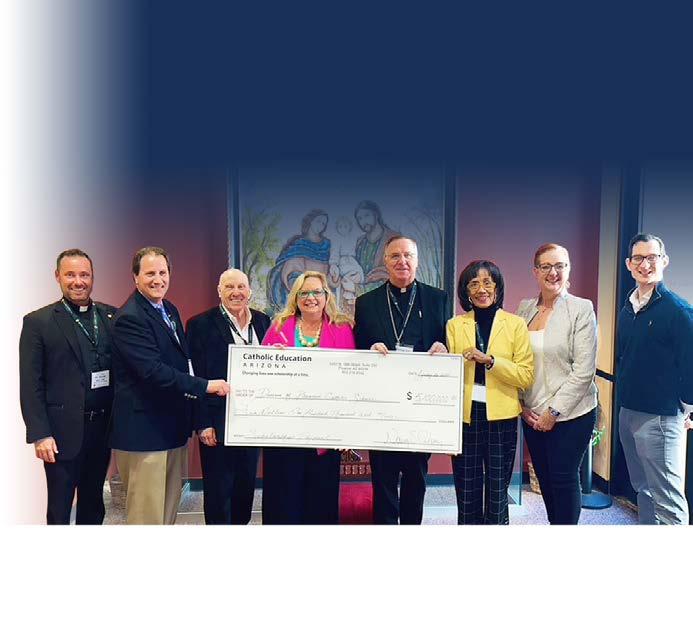


AZ
AZ Disabled/Displaced Corporate Tax
Lives with
Non-Tax Credit
| WWW.CEAZ.ORG
Ways You Can Change a Child’s Life with K-12 Scholarships Catholic Education Arizona is an IRS 501(c)(3) nonprofit charitable organization and has never accepted gifts designated for individuals. Per state law, a school tuition organization cannot award, restrict or reserve scholarships solely on the basis of donor recommendation. A taxpayer may not claim a tax credit if the taxpayer agrees to swap donations with another taxpayer to benefit either taxpayer’s own dependent. TURN YOUR AZ TAX LIABILITY INTO CHANGE FOR GOOD!
Arizona Individuals and Corporations Gave $338 Million Reasons to Educate Underserved Children.
Individual Tax Credits AZ Low-Income Corporate Tax Credit
Credit Changing
Legacy
Donations 602-218-6542
Four
Offer affordable rents & mortgages Nourish families with healthy meals Promote improved quality of life Uplift family caregivers Invest your Arizona taxes with FSL to: 602-285-1800 | WWW.FSL.ORG



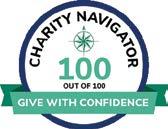


Add value to your clients by offering tax credit assistance



Notice (A.R.S 43-1603): A school tuition organization cannot award, restrict, or reserve scholarships based solely on a donor’s recommendation. A taxpayer may not claim a tax credit if the taxpayer agrees to swap donations with another taxpayer to benefit either taxpayer’s own dependent For corporate clients, help them reduce taxable income by using tax credits
Austin Billingslea
Daliah Bui
Jay Ganesan
Marissa Graves
Ignatius Jackson
Sarah Jones
Mark Kohler
Donnie Neves
Dennis Osuch
Lisa Parke
Stella Shanovich
Tom Duensing AZ CPA Editorial Committee
Alli Byrne, Trevor Johnson
Mike Nyman, Adrian Ochoa Amy O’Loughlin, Becky Pusch AZ CPA is published by the Arizona Society of Certified Public Accountants (ASCPA) to provide information, news and trends to the accounting profession. It is distributed six times a year as a benefit to ASCPA members. The ASCPA, its members, board of directors and administrative staff assume no responsibility for advertisements herein. The ASCPA and the above people also assume no liability for business decisions made by readers in reference to statements and/or claims in articles or advertisements within this publication. Opinions expressed by contributors are not necessarily those of the ASCPA. Arizona Society of CPAs 410
SINCE 1998 SCHOOLS 330+ IBE Provides
Tax credits is about adding customer value to your services Help your clients utilize Arizona's largest tax credit - The Private School Tax Credit Dedicated Corporate Coordinator Online Simple Donor Form Online Chat Support Less then 5 Minute Process Pay with Credit Card or Check AZ CPA The Arizona Society of Certified Public Accountants President & CEO Oliver Yandle Editor Haley MacDonell Advertising Heidi Frei Board of Directors Chair Lauren Murro Chair-Elect Eugene Park Secretary/Treasurer Joe Heidleburg Directors Tahir Alhassan
Immediate Past Chair Andrea Levy AICPA Council Members Kelly Damron
(602) 252-4144
Toll-Free (888) 237-0700
See the CPA community in action and get involved in local events. Follow us at @ArizonaCPAs on Instagram. 4 AZ CPA MAY/JUNE 2024
N. 44th St. Ste 205 Phoenix, AZ 85008 Telephone
AZ
www.ascpa.com

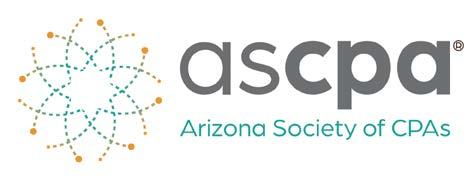
9 The Road to CPA: Candidates Navigate Fifth Year of Education & CPA Evolution By Haley MacDonell 13 Arizona CPA Foundation for Education & Innovation 14 The Value in Your ASCPA Membership 17 The Corporate Transparency Act & Its Impact on Small Businesses By Adrian Ochoa 19 What’s Happening at the ASCPA? 20 Meet our 2024–2025 Board of Directors 23 Understanding Enterprise Risk Management By Jake Taylor & Brent Warner 26 Employee Benefit Plan Roundup: SECURE 2.0, Department of Labor Audit Quality Study, New Auditing Standards and Audit Requirement Change By Allisyn Keyser Byrne, CPA Columns & Departments Chair’s Message by Lauren E. Murro, CPA 6 Member News 7 Quick Quiz 27 9 The Road to the CPA: CPA Candidates Share Their Story AZ CPA Features Volume 40 Number 3 May/June 2024 410 N. 44th St. Ste 205 Phoenix, AZ 85008 www.ascpa.com MAY/JUNE 2024 AZ CPA 5
ASCPA Chair’s Message
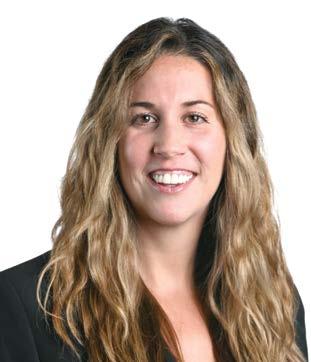
It’s Time We Humbly Brag About Our Profession
It’s a little funny to me to be considering the start of May another “new year” within our profession. It seems like CPAs are increasingly busy year-round. However, it’s important to acknowledge a new year within our profession as we begin the ASCPA’s fiscal year.
I am honored to represent the Arizona Society of CPAs as your new board chair.
The past year (for a few years now) has been a testament to our adaptability as a profession. As CPAs, we are often known for our dedication to accuracy, integrity and ethical conduct. We may not be known as the most flexible, progressive group.
How many people still have a clunky 10-key on their desk? Do we eagerly predict the changes to our profession? Did anyone see the many challenges of the Employee Retention Tax Credit coming? From new rules and regulations to the impacts of artificial intelligence and new software, we have shown adaptability and remain steadfast. We continue to be seen as trusted experts in our roles to the public. I’ve certainly done my fair share of griping about learning a new tool or accounting standard, yet I always remember that I enjoy the learning aspect of this career and the ever-changing environment. Wouldn’t we all be bored otherwise?
It’s no doubt that we have some challenges down the line. Pipeline challenges, ranging from recruitment and retention to diversity and inclusion, are paramount concerns. However, I think as a group, we can leverage our strengths to drive change.
Recruiting could be the cornerstone of our profession’s sustainability. I think back to when I was a student, looking to start my career as an assurance associate in public accounting, with barely a clue of what I’d be doing each day. Now, I go through the recruiting process on the opposite, less stressful side of the table, and I continue to tell students to interact with as many professionals as they can. I encourage them to learn more about work cultures and why they enjoy their career. The demographics are shifting, and the younger generations have a different concept of work. We are competing with professional athletes, actors, musicians and this new idea of “influencers.” It’s time we humbly brag about our experiences in this profession and the fulfilling lives it has allowed us to live in order to cultivate the next generation of CPAs.
Retention emerges next as a critical area for us to nurture talent and foster long-term career satisfaction. Where it historically might have been stressful to take time away to deal with a necessary AC repair or doctor’s visit during the week, the flexibility to work remotely has alleviated much of that worry for many of us. For me, the future of my career is bleak without those CPAs around me finding job satisfaction and looking toward their future. As a new CPA in my career, I was fortunate to have many mentors who provided endless opportunities to be challenged. I had people who cared not only that I was effective and efficient, but also about my career and my overall well-being. It’s important we invest in the professional development and well-being of the CPAs around us to encourage retention in the profession.
Lauren E. Murro, CPA Chair, Arizona Society of CPAs Partner, Eide Bailly
6 AZ CPA MAY/JUNE 2024
Finally, it is important we foster diversity and inclusion. Diversity enriches our perspectives, drives innovation and enhances our ability as CPAs to serve a diverse client base. As I mentioned, the challenges – or as we often refer to them to our staff, “opportunities” – of this profession are part of what I enjoy most. Including new voices and perspectives increases that opportunity for our growth. By championing diversity and creating an inclusive culture where all voices are heard and valued, we ensure its relevance and resilience in an increasingly interconnected world.
As a member of the ASCPA’s board for the past four years, I’ve experienced first-hand the emphasis that has been placed on recruiting, retention, diversity and inclusion. In the past year, the ASCPA’s members and staff have worked diligently to overcome the impacts of the pipeline through new initiatives including increasing their presence at universities across the state and hosting free, one-of-a-kind career exploration days. I appreciate everyone who has been involved in these initiatives and encourage others to join the efforts. Above all, I look forward to the coming year and playing a part in the future of CPAs in Arizona by serving as your chair. l
Warm
Regards, Lauren Murro
Ronald Butler, Jr., CPA has been selected as the Eller College of Management 2024 Alumnus of the Year.
Dennis M. Hare, CPA, was promoted to partner at Lohman Company, PLLC.
Robert K. Minniti, CPA, received a 5-year appointment to the Arizona Board of Accountancy’s Continuing Professional Education Advisory Committee.


$1,459 / individuals $2,910 / married couples C Corps, S corps, LLCs and insurance companies can take Arizona’s dollar-for-dollar corporate tax credit through the JTO and provide need-based scholarships.

See
ascpa.com/
The Jewish Tuition Organization (JTO) is a certified school tuition organization (STO) 480.634.4926 | JTOphoenix.org | info@JTOphoenix.org
Meet Your Board of Directors As the ASCPA begins it’s next fiscal year, we’re introducing our new and returning board members.
the full list here:
boardofdirectors
FOR INDIVIDUAL TAXPAYERS YEAR 2024
Visit JTOphoenix.org or call for information on the corporate tax credit Help your clients
their tax
TAKE THE CREDIT FOR EDUCATION
maximize
credits!
MAY/JUNE 2024 AZ CPA 7
Member News









• 40 YEARS SELLING PRACTICES



• BANK FINANCING AVAILABLE
• CASH OUT AT CLOSING












• OVER 45,000 QUALIFIED BUYERS WAITING!
• CONSULTING FROM LISTING TO CLOSING
• SAMPLE PURCHASE AND SALE AGREEMENTS PROVIDED
• NO LONG TERM LISTING AGREEMENTS
• RECENT REFERENCES AVAILABLE
• FOLLOW UP ASSISTANCE DURING TRANSITIONING
• YOUR CONFIDENTIALITY ASSURED
PRACTICE
/
Cash
Waiting! 480-525-8983 • www.cpasales.com Rich Joliet, CPA Member ASCPA
your
in 90 days for CASH Phoenix-Scottsdale Sales Price $1,450,000+
Phoenix-Mesa Sales Price $1,125,000 Tucson Sales Price $800,000+
Tired? Over-worked? Ready for a Change?
SALES Buy
Sell / Merge
Buyers
Sell
practice
RECENT LISTINGS

The Road to CPA: Candidates Navigate Fifth Year of Education & CPA Evolution
By Haley MacDonell
When you were a CPA candidate, how did you manage all your responsibilities? CPA hopefuls have to juggle it all: a career, an education program, commitments to loved ones and maintaining general wellbeing. Studying and choosing the path to the CPA exam is a decision not taken lightly.
Continued on next page...
MAY/JUNE 2024 AZ CPA 9
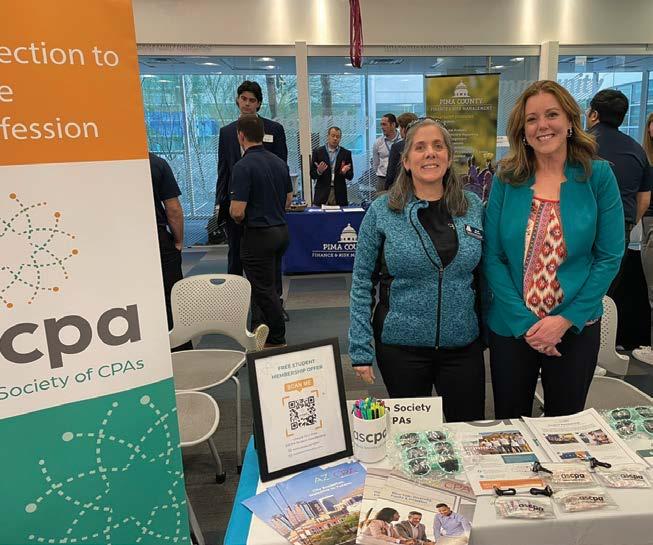
Additionally, today’s candidates grapple with the extensive changes to the CPA exam, CPA evolution, to transform with the rise of new technology and skillsets. The new exam has three exams covering financial reporting, auditing and regulation and requires candidates to also test on one of three disciplines — Information Systems & Controls; Business Analysis & Reporting; and Tax Compliance and Planning.
Nearly 40 years after the 150-hour rule was proposed and six months after the most dramatic CPA exam change in decades, what does the journey look like from accounting hopeful to adding CPA after their name? We asked four newly designated or soon-to-be CPAs about their road to the CPA.
If progression toward the CPA designation is a road, then adding a master’s of accountancy or taxation is main street.
At the University of Arizona Janeé Johnson, CPA, senior lecturer and associate director for the DhaliwalReidy School of Accountancy (DRSOA) has worked closely with enhancing the master’s program through engaging student events, peer-to-peer learning among faculty and up-to-date courses. According to Johnson, about 90% of master’s students are on their way to the CPA designation.
Johnson, who is being recognized this year as the ASCPA’s Excellence in Teaching Award recipient, is dedicated to keeping the master’s program as relevant as possible for future accounting professionals and shares plenty of her experiences from being a tax manager early in her career. She continues to prioritize mentorship in the program, a change that is being felt across accounting education.
“For many decades, including when I was a student, accounting programs used certain classes as weed-out classes, to whittle down our student group to only the best of the best,”
Johnson said. “That mindset has to change. Now, we strive to mentor in. There are plenty of intelligent, capable students that would make outstanding accounting professionals, but they need our help and guidance to be able to see that future for themselves.”
Keegan Reynolds started his career in the Navy and earned his accounting degree while stationed in Richmond, Virginia. At first, he thought he would become a math teacher, just like his grandmother. In the end, he followed his stepmom and grandfather, who worked as a recruiter in the accounting industry and a CPA, respectively. He saw just how far the credential could take him. Now working toward a Master of Accountancy at the University of Arizona, there’s a lot to juggle between his classes, his full-time job and preparing for the exam.
“You have to take it one day at a time,” he says. “The hardest part isn’t finding the time to study: It’s ensuring that you still keep time to yourself. You need to go to the gym, hang out with family and make sure you don’t just fall into the world of accounting.”
He’s happy with his progress, but one piece of the updated CPA exam is slowing him down: receiving his exam scores.
“I feel like this journey was slightly easier last year,” Reynolds said, “because you could find out your score much faster. I took my audit exam at the end of January, but I won’t find out until June if I passed. That’s six months.”
10 AZ CPA MAY/JUNE 2024
The ASCPA is championing the CPA profession at events like Meet the Firms at the University of Arizona. Johnson plays a leading role in coordinating these events for accounting students.
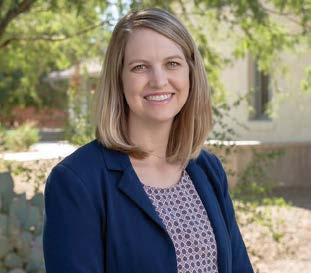
Reynolds is pushing forward, preparing for the next section, but if the scores don’t come back in his favor, he has to retrace his steps to six months ago before retaking the exam. He’s not alone. All CPA candidates who were taking the new exam agreed that waiting six months for scores has slowed their progress.
Some organizations are likely to reward early career accounting professionals who earn their CPA within one year with a bonus. Additionally, adding the CPA credential to your resume unlocks leadership opportunities and advancement.
For other CPA candidates, another deadline was counting down: the rollout of the new exam. Matthew D. McCann, CPA, who was licensed in March, was one of many CPA hopefuls who made decisions about sitting for the exams based on the upcoming changes. As the CPA Evolution exam changes loomed, he had one section left to sit for that was undergoing major changes: the Business and Environmental Concepts (BEC) section. The section wouldn’t exist in CPA Evolution.
“I had about six months before the changes would take place,” McCann said. “I remember thinking that if I failed it, I’ll try one more time. If I don’t get it the second time, I’m going to have to read up and adjust to the new exam.”
He made it a priority to take the test, and pass, before the change would take place in January, studying every day, even if it was just 30 minutes. McCann sat for and passed the final section of the CPA exam, just a few months before the new exam rolled out.
At Northern Arizona University, Laila Herbert and her cohort of CPA candidates were preparing to sit for BEC as their first section around the same time, even though it was on the chopping block.
“I purposefully took it to keep the credits,” Herbert explained. “Usually, sections expire in 18 months, but I get 18 months from January, even though I took it in September. It gives me extra time.”
Herbert is on her way to the CPA on a road less traveled: an MBA program. At NAU, she can earn her degree in an accelerated 10-month sprint.
“My MBA has an accounting track, but most of my classes are management courses,” she explains. “I felt ready to take the CPA exams after my undergrad. I felt like I had all the knowledge, and if there was anything I didn’t have, it was going to be in the study materials. I really only needed the credits.”
The greatest perk of her MBA is seeing the big picture, as a business advisor and entrepreneur. It also impacted her career interests. Two years ago, she was prepared to go into public accounting, for the track to partner. With more business acumen under her belt, she could see herself branching into private accounting or launching her own business one day.
Nathan Schulhof, a recent graduate from the University of Arizona, also went beyond traditional courses to fulfill the requirement. He completed the 150-hour requirement in just four years through concurrent degrees in accounting and management information systems.
“I talked to one of the advisors, because I knew I wanted to be a CPA, but I didn’t want to do a master’s degree and be in school for that long,” Schulhof says. There, he learned that as long as he earned the additional credit hours, and the correct amount specific to accounting, then he would be eligible. He’s relying on supplementary study materials, like Becker — a favorite among all interviewees — to prepare him beyond his undergraduate degree.
From all the candidates and new CPAs who spoke to AZ CPA for this article, all of them agreed on one thing: the camaraderie of their peers was a great benefit of earning the extra 30 credit hours through a fifth year of education.
For Laila Herbert in Flagstaff, she and her cohort of candidates took the BEC section the same week and went out to dinner to celebrate all their hard work. They hosted study sessions and strategized which exams to take first. For Matthew McCann in Phoenix, it was his master’s cohort and its group text thread that kept him going. For Keegan Reynolds in Tucson, it’s the push from his manager at work, a CPA, and the support from his parents and fiancée.
“The CPA designation is just a stamp of approval on the work you put into the profession and the knowledge you’ve been able to retain,” Reynolds said. “For me it would open so many more doors than with just a bachelor’s degree alone.” l
MAY/JUNE 2024 AZ CPA 11
Janeé Johnson, CPA


888-783-7822 www.APS.net Sherif Boctor sherif@APS.net Delivering Results -One Practice At a time Scan Here 267 Practices Sold in 2023! Is it time for... Time to SELL Your Practice? Family Life A Change
Arizona CPA Foundation for Education & Innovation
Since 1990, the Foundation has supported over 400 students on their journey to the accounting profession and the CPA exam. Without the generosity of people like you, we would not be able to continue this legacy of giving. We would like to thank the top contributors who gave to the Foundation in 2023.
$1,000
Laurie M. Boaz
Mark Landy
$500
Glenn C. Conover
Lawrence Field
Rufus Glasper
Christopher P. Torregrossa
Randy D. Wagner
$250
Brenda A. Blunt
Rachael Crump
$200
Kelly Damron
Nancy Thomas
$150
Scott A. Donaldson
$100-149
Jeanne M. Bentley
Benjamin Cilek
David Collins
Kevin T. Eyman
Adela E. Jimenez
Tyler J. Hamelwright
Lauren Murro
Lisa Parke
Christina C. Roderick
James M. Susa
Oliver Yandle
In Memory of
Stephanie Michelle Chance
In Memory of
Allen Nahrwold
$50
John Dallmus
Bryant Duffek
Marissa Graves
Vincent Harder
Gabby Luoma
Andrew Mark
Kelly McCarthy
Eugene Park
James Privee
Kay Probert
Anna So
Linda Tansik
Michael Zongolowicz
To support the CPAs of tomorrow, we encourage you to donate to support scholarships in Arizona. Visit ascpa.com/foundation to learn more about your impact.
MAY/JUNE 2024 AZ CPA 13
The Value in Your ASCPA Membership
You belong to the largest CPA community in Arizona, with over 4,400 CPAs. You have access to the combined knowledge of your peers with the Connect online community. Here is what some members say about Connect.
HEAR WAS ASCPA MEMBERS LOVE ABOUT CONNECT!
I am incredibly grateful for all the invaluable advice and input that Connect offers. I do not know what I would do without it!
Amy Spencer, CPA
I’ve come to realize there are so many more local CPAs who may not be contributing but are still following and benefiting from our discussions. I appreciate the ASCPA and their staff for starting this Connect Site, improving it and maintaining it; it wouldn’t exist without the magic behind the curtain!
Caryn Horvitz-Strauss, CPA
As a sole practitioner, I often rely on (and appreciate) my fellow colleagues’ input on tax questions and situations. That wouldn’t be possible without the ASCPA’s Connect community.
Greg Leopard, CPA
Get Involved
Maximize your professional growth and contribute to your community by:
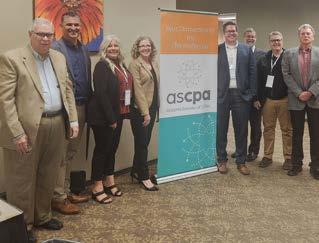
CPE Savings

Save on CPE and get the education you need, when you need it. As a member, you always save 25% off the nonmember rate.
• Free Webinars: Continue registering for free one-hour CPE webinars –a $272 value!
• Year-Round Savings: This year, we dropped the price of most webinars to last year’s early-bird rates, so you receive the lowest rate all year. Don’t miss out on in-person tax seminars offered at a special rate in November & January and conferences with early registration incentives.
• Just-In-Time CPE: Looking for CPE courses that fit your schedule? New on-demand courses showcase the best of our conference speakers and popular instructors. Check back often for newly added on-demand & self-study catalog offerings.
• Local Networking Opportunities: Professional Issues Updates visit Prescott, Flagstaff, Tucson and Yuma annually for one hour of free CPE.
• Phoenix Tax Workshop meets eight times a year exclusively via Zoom. This cost-effective tax program allows you to earn up to 24 CPE credits from the comfort of your home or office.
Check out the course catalog at ascpa.com/cpe.
• Present at conferences to showcase your expertise and elevate your professional brand.
• Volunteer for student initiatives that support future CPAs.
• Contribute as a writer for the ASCPA’s magazine and our website.
Get more information at ascpa.com/volunteer
—
14 AZ CPA MAY/JUNE 2024


ASCPA Members Protect the CPA Credential
1,760 pieces of legislation reviewed for impact to the profession
March 18
Gov. Hobbs signs income tax conformity
HB 2379
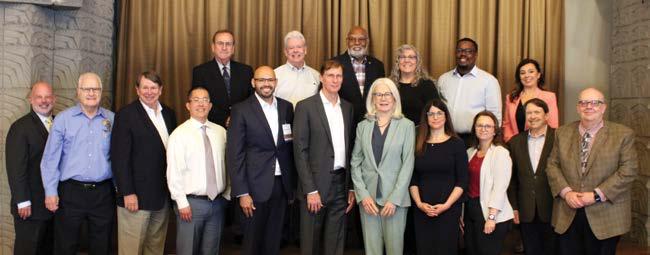
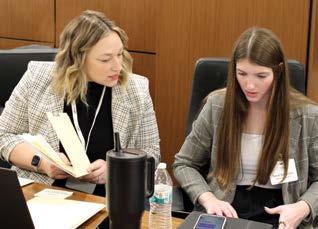
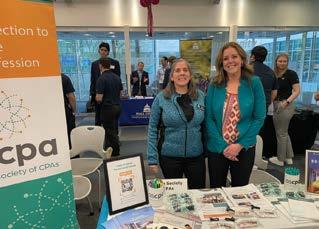
Daniel C. Andersen
The ASCPA is the voice of the CPA profession at the Arizona Legislature and provides nonpartisan technical expertise on accounting, finance, business and tax policy. As an ASCPA member, your participation strengthens our role in the legislative process. The ASCPA:
• Works with the Arizona Department of Revenue to address concerns brought forth by members like you.
• Hosts events like CPA Day at the Capitol and the Tax Conformity Debrief to affirm relationships with legislators and inform them of top issues impacting CPAs. Advocates for the successful passage of legislation to conform to the federal internal revenue code.
• Partners with the Arizona State Board of Accountancy to protect the CPA credential and the public.




Donald R. Bays
Paul R. Bjorklund
Deanna J. Durkee
John A. Eck
Franklin C. Forsberg
Donald R. Gehrke
Richard W. Hammel




William J. Hodges, Jr.
Richard L. Kearney
Kenneth W. Kuenzli
James S. Kuykendall
We are thrilled to celebrate 50 years of unwavering membership, support and dedication from the following leaders of the CPA profession.
John M. Lawless Jr.
Donald R. Leo
Stephen A. Padwe
Larry L. Roberson
Melvin R. Smith
Carlos E. Wagner
View a full list of members commemorating their ASCPA anniversaries at www.ascpa.com/anniversary

Happy 50th Anniversary
you haven’t renewed your membership, please visit www.ascpa.com/ renew or scan the
MAY/JUNE 2024 AZ CPA 15
If
QR Code.

Rethink HR: Boost Efficiency
64% of companies spend over 570 hrs. a year on HR admin. *
What would you do with an extra 570 hours?
If you’re looking for ways to keep up with the demands of compliance, talent sourcing, retention, and capacity planning, embracing HR technology may offer you a great solution — allowing you to do more, with less time and effort. HR technology can help businesses of all sizes to:
• Manage compliance with applicable employment laws & regulations
• Increase productivity
• Increase efficiency in hiring
• Save time spent on administrative tasks
• Access data for better-informed decision making
• Reduce costs and manual data entry errors
Paychex HR Services offers an industry-leading HR technology platform and comprehensive, flexible solutions for managing HR tasks and benefits.
You and your clients will get the right amount of help to meet your HR needs and budget, with the ability to add more support when you need it most.
Visit
Paychex is proud to be the preferred provider of payroll, retirement, and HR solutions for the ASCPA. StateSociety@paychex.com
*2024 Priorities for Business Leaders report © 2024 Paychex, Inc. All Rights Reserved. | 2428427 04/12/24
go.paychex.com/ascpa-HR24 to learn more.

The Corporate Transparency Act & Its Impact on Small Businesses
By Adrian Ochoa
When Congress enacts laws that impact businesses, it is the small businesses that take the greatest hit due to a lack of resources to learn the intricacies of the rules and pay professionals to help navigate the law. This is generally true even when a law is enacted to combat worthy national, social and economic goals, such as combating money laundering, terrorism and tax fraud.
Continued on next page...
MAY/JUNE 2024 AZ CPA 17
By now you have likely heard of the new Corporate Transparency Act (CTA). In enacting the CTA, Congress mentioned that perpetrators have sought to conceal their ownership of corporations, LLCs or similar entities to facilitate money laundering, financing terrorism, tax fraud and other illegal acts. Thus, Congress thought that federal legislation, which required the collection of beneficial ownership information (BOI), was needed to effectively combat these illegal acts and to protect national interests.
The CTA, which went into effect on January 1, 2024, requires otherwise unregulated companies to report information about “beneficial owners” – those who own at least 25% of or exercise substantial control over the reporting company – to the U.S. Department of the Treasury’s Financial Crimes Enforcement Network (FinCEN). Failure to comply could result in fines of up to $10,000 and imprisonment for up to two years.
Unfortunately, the vast majority of businesses that must comply with the CTA are small businesses. The CTA expressly exempts the “large operating company.” The law exempts 23 types of businesses, including accounting firms, banks, charitable entities and large operating companies that meet certain requirements. The CTA’s “large operating company” exception must meet three criteria: the number of employees, its operating presence and its gross receipts or sales.
Compliance Costs for Small Businesses
The CTA’s cost of compliance for small businesses will be high because the law is vastly complicated and failure to comply can trigger serious financial consequences and even imprisonment. According to the Small Business Administration and U.S. Chamber of Commerce, 99.9% of all businesses in America are considered small businesses. Small businesses, in other words, are the backbone of American economic growth –they pay taxes, create jobs
and support local communities. The CTA and other similar federal laws, like the Internal Revenue Code, have a greater negative impact on small business owners than large corporations because they often lack the resources to navigate the intricacies of the requirements. Failure to follow the rules, even by an honest mistake, can have dire financial consequences.
Contesting Penalties and Procedures
I help taxpayers contest all sorts of penalties assessed by the IRS and FinCEN. Like the Report of Foreign Bank and Financial Accounts (FBAR), CTA is administered by FinCEN. However, unlike FBAR, the IRS has not been given the authority to enforce the CTA. The CTA imposes a penalty of $500 for every day a reporting company is late, up to a maximum penalty of $10,000. The penalties are similar for failure to file the FBAR on personal income tax returns. In the case before the U.S. Supreme Court Bittner v. United States, the taxpayer had not filed the FBAR on five foreign bank accounts from 2007 through 2011. The Tax Court calculated the fines as totaling $50,000 – that is one per report, while the IRS calculated the fines as totaling $2.72 million! As shown in this case, the potential costs for not filing and complying with federal law, even if due to an oversight, can be very high, and federal agencies pursue these penalties with a heavy hand.
Moreover, unlike various other tax matters, in which the taxpayer can take their dispute to Tax Court, Tax Court is not available for FBAR penalties because the FBAR is not a tax form. The IRS began enforcing FBAR penalties back in 2003, but the FBAR is a FinCEN form. Even though the taxpayer does not have an opportunity to go to Tax Court, the taxpayer does have an opportunity to go to the IRS Office of Appeals.
In addition to IRS Appeals, the taxpayer can file in Federal District Court. The question is whether FinCEN will follow similar procedures and
allow business owners to contest and appeal the CTA penalties with the same or similar due process rights as other IRS penalties. Another question is whether FinCEN will impose any penalties during the first year, as the law is still exceedingly fresh, and business owners and professionals are still learning to navigate the law. Arguably, business owners will have reasonable cause to abate the CTA penalties because the law is so new.
Is the CTA
Unconstitutional?
Small businesses have hope that courts will hold that the CTA is too burdensome and unconstitutional. A federal court in Alabama on March 1, 2024, ruled that the CTA is unconstitutional, as challenged by the National Small Business Association.
Since the court prevented the FinCEN from enforcing the CTA against the plaintiffs, the court broadly rejects the constitutionality of the statute, rather than a more tailored “as applied” rationale. The Act “exceeds the Constitution’s limits on the legislative branch and lacks a sufficient nexus to any enumerated power to be a necessary or proper means of achieving Congress’ policy goals,” the opinion said. Following the ruling, FinCEN issued a statement clarifying it will only cease enforcement with respect to the specific plaintiffs in the case, rather than with respect to all reporting companies. As of now, the CTA and its BOI reporting requirements remain in effect for all other entities that are required to report BOI to FinCEN under the CTA. Many believe that if it’s unconstitutional for NSBA members, it should be unconstitutional for all businesses.
Finally, as expected, new companies are popping up offering to assist reporting companies with their CTA compliance. It is important and advisable to check with existing advisors to determine if these entities are legitimate and worthwhile. l
Adrian Ochoa is of counsel at Burch & Cracchiolo. He is an ASCPA member and serves on the ASCPA’s editorial committee.
18 AZ CPA MAY/JUNE 2024
What’s Happening at the ASCPA?
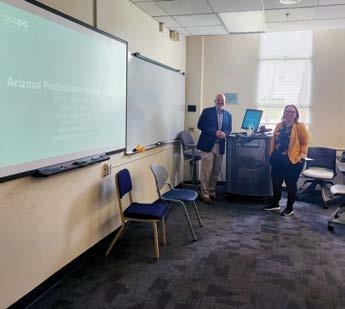
Professional Issues Update Comes to Tucson
March 14, 2024
President & CEO Oliver Yandle was joined by Past Chair Rachael Crump in Tucson, where they met with ASCPA members to discuss changes to the profession, including the Board of Accountancy and the talent pipeline.
CPAs & Students Team Up to Feed the Hungry
March 23, 2024
The ASCPA organized a Spring community service project and partnered again with the nonprofit, Feed My Starving Children located in Mesa. Student members from different universities and CPAs joined forces to serve the community by packing meals during a 2-hour session aimed at combating childhood hunger and making a meaningful difference.

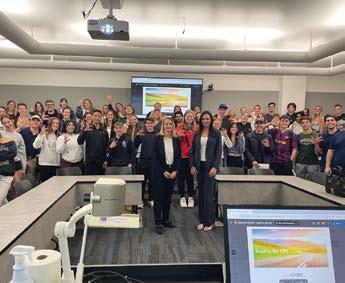
Road to the CPA Stops in Tucson
March 26, 2024
The ASCPA brought its signature informative event, Road to the CPA, to a student organization at the University of Arizona. Thank you to ASCPA members Kim Allison and Heather Triana for sharing their experiences.
Get Involved
June 21
Not-for-Profit Conference
ascpa.com/npc
If you work in nonprofit accounting or serve on a board, you don’t want to miss this special conference experience. Attend in Phoenix or live online, and receive CPE credit for staying up-to-date in your industry.
May 24
Phoenix Tax Workshop
ascpa.com/ptw
Join other Arizona tax practitioners for one of our member-favorite programs. PTW has been sharing the latest developments in federal, state and local taxes for over 60 years. This webcast series is designed by tax practitioners, for tax practitioners.
MAY/JUNE 2024 AZ CPA 19
Meet our 2024–2025 Board of Directors
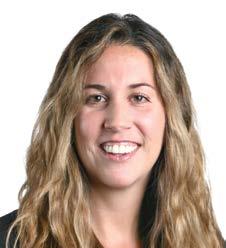
Lauren Murro
ASCPA Chair Eide Bailly LLP
Childhood Dream Job: Lottery Winner
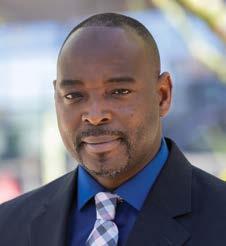
Tahir Alhassan
ASCPA Director City of Phoenix
Childhood Dream Job: Need

Marissa Graves
ASCPA Director Best Self Aesthetics
Childhood Dream Job: Bakery Owner

Eugene Park
ASCPA Chair Elect
Heinfield, Meech & Co., P.C.
Childhood Dream Job: Starting Point Guard (Phoenix Suns)
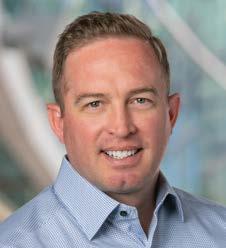
Austin Billingslea
ASCPA Director
Arevon Energy
Childhood Dream Job: Firefighter

Ignatius Jackson
ASCPA Director Ignite Accounting LLC
Childhood Dream Job: Police Officer

Joe Heidleburg
ASCPA Secretary/ Treasurer
Align Technology, Inc
Childhood Dream Job: Doctor

Daliah Bui
ASCPA Director BeachFleischman
Childhood Dream Job: Chef
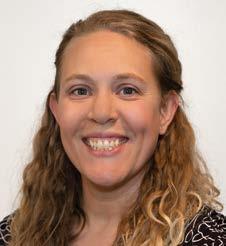
Sarah Jones
ASCPA Director Haynie & Company
Childhood Dream Job: Teacher
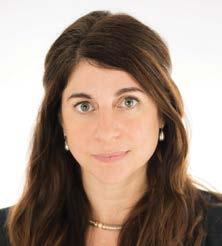
Andrea Levy
Immediate Past Chair Greater Phoenix Chamber
Childhood Dream Job: Botanist

Jay Ganesan
ASCPA Director The Centers for Habilitation
Childhood Dream Job: Accountant

Mark Kohler
ASCPA Director Main Street Tax Pro Network
Childhood Dream Job: Tax Lawyer
20 AZ CPA MAY/JUNE 2024
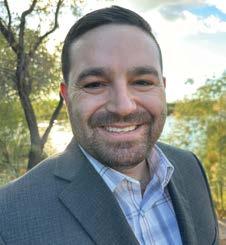
Donnie Neves ASCPA Director EY
Childhood Dream Job: Lawyer
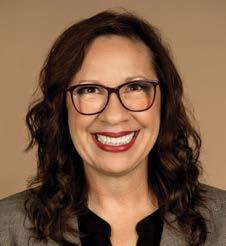
Stella Shanovich ASCPA Director Retired BDO Partner
Childhood Dream Job: Singer/Songwriter

Oliver Yandle President & CEO Arizona Society of CPAs
Childhood Dream Job: Game Show Host
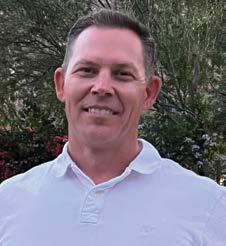
Dennis Osuch ASCPA Director Osuch Consulting PLLC
Childhood Dream Job: Police Officer
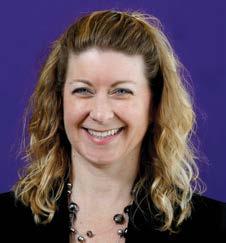
Kelly Damron AICPA Council Member Grand Canyon University
Childhood Dream Job: Flight Attendant
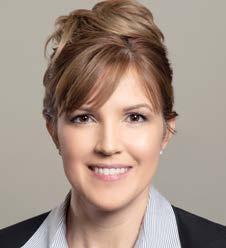
Lisa Parke ASCPA Director Walker & Armstrong, LLP
Childhood Dream Job: Accountant
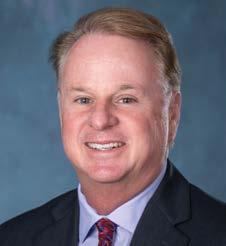
Tom Duensing AICPA Council Member City of Tempe
Childhood Dream Job: Truck Driver
“For over 90 years, the ASCPA has been essential to all CPAs in Arizona. We have thrived thanks to dedicated members who are willing to step up and share their expertise. On behalf of the entire membership, I’d like to extend my sincere gratitude to our incoming and continuing board members. Their commitment shapes our organization and the entire CPA profession in our state.”
MAY/JUNE 2024 AZ CPA 21



October 17 & 18, 2024
At Converge, you’re in the driver’s seat. Our annual conference lets you map out the perfect day of sessions to earn 12 credits of CPE in the areas of practice that matter most to you. Plus, we’re adding more professional development sessions to our agenda!

Venue8600 in North Scottsdale ascpa.com/converge
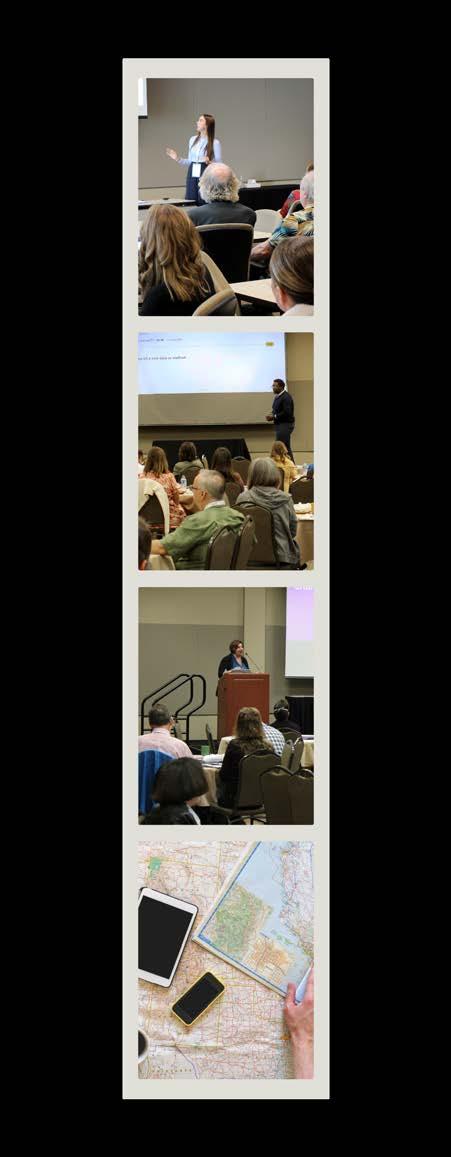




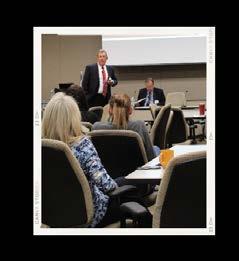
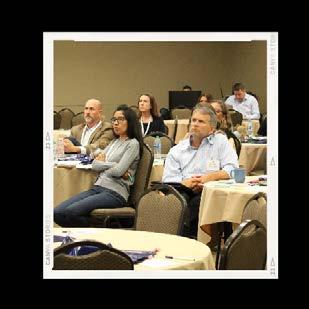
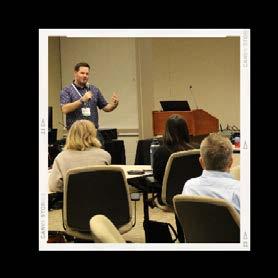



platinum sponsor C NVERGE24
Register before August 30 to unlock early discounts.
accounting & assurance professional development tax updates
session topics more on the agenda
gold sponsors Aon | Paychex

Understanding Enterprise Risk Management
By Jake Taylor & Brent Warner
Businesses today face ever-increasing and changing risks. How do we compete in a world of artificial intelligence? How do we attract, hire and retain top performers? How do we keep our finger on the pulse of changing laws and compliance matters that impact our business?
Continued on next page...
MAY/JUNE 2024 AZ CPA 23
Considering these individually may seem like an overwhelming task, but a common tool is available that can help bring it all together in a meaningful way.
What is Enterprise Risk Management?
Enterprise risk management (ERM) is a systematic approach to identifying risks associated with running a business, assessing their likelihood and potential impact, and developing strategies to manage and mitigate those risks. While approaches to implementing an ERM program vary, the fundamental steps are often similar.
1. Gain an understanding of your mission, vision and values and how that combination drives your strategic goals.
Start here before you dive into risks. The driving force behind implementing an ERM program comes back to how you can successfully achieve your strategic goals.
2. Design (or borrow) an ERM framework.
There are many existing ERM frameworks where you can look for guidance. The COSO ERM framework is a popular framework used by many ERM practitioners. Also popular is the AS/NZ – ISO 31000 ERM framework. You do not have to prescribe to these, or any other framework completely, but you are encouraged to borrow from multiple frameworks and craft your own, tweaking along the way as you mature the ERM process.
3. Identify and document your risks.
Review materials already at your disposal – corporate strategic plan, board minutes, etc. – to understand what leadership is focusing on. Interview key leaders, such as board members, to gauge what stakeholders have on their mind related to risk. As you identify risks, it is important to note that risks will be internal, external or both.
External Risk: The risk of finding the right talent during a tight labor market could be driven by market conditions outside of your control.
Internal Risk: Once you find and hire the right talent, failure to train, develop or compensate those employees could cause you to lose them.
4. Rank the risks you have identified. Likelihood, impact, speed of onset and speed of response are common factors used to score and rank risks.
This is a crucial step as it helps prioritize what could be a long list of identified risks. Likelihood criteria could be developed on a 1 to 5 scale.For example, one means the organization has successfully responded to the risk before, management has action plans in place, systems are effective through the risk, and employees are minimally impacted.
Conversely, five means the organization has never faced the risk and is untested, systems could fail, and the event has a severe, negative impact on all employees.
Impact criteria are also developed to score risks across various categories, such as financial, legal, regulatory or reputational.
Consider scoring how fast the risk event could occur and how quickly the organization can respond to the risk. The COVID-19 pandemic sprang up overnight. This was a risk not seen by many organizations, and they responded as quickly as possible. How many of these scenarios do you think you can identify as part of an ERM risk assessment?
5. Socialize the risks identified.
Using the factors and their scores noted above, you should rank them from high to low as a means for focusing your stakeholder’s review on the highest-ranked risks. At this point, you may also ask, “Is there anything on this list that surprises you?” Or “Is there anything not on the list that you expected to see?”
6. Develop action plans.
When going through an ERM process, it is important to not make this a one-and-done exercise. Your organization will not find value if you do steps 1 to 5 and put the binder up on the shelf. Assign owners to top risks, produce action plans on how to manage and mitigate risks, and ensure you monitor progress on an ongoing basis.
Regular updates to the Board on the status of ERM is an effective way to keep risk owners accountable for actively managing their risks. Risk owners should work with those developing the organization’s ERM model to produce key risk indicators. These indicators tell you if a risk is increasing, decreasing or staying the same. For example, if a not-for-profit organization notices an increase in turnover rates with staff who have long-lived relationships with large donors, how does that impact donor retention or turnover? Does that increase the risk that donors may take their charitable means elsewhere?
24 AZ CPA MAY/JUNE 2024
Next Steps on Your ERM Journey
Any organization can benefit from implementing an ERM program and can flex it to meet your needs, budget or resources. As you think about going down the ERM path, it is important to remember to:
1. Assign an ERM owner and champion. Who will help send the message throughout your organization that ERM is important?
2. Determine your risk tolerance. Are your leaders aligned on risk tolerance and accept a common definition of risk as it relates to your organization?
3. Develop a game plan. Great software applications exist that can help you manage this effort, but you can just as easily do it using good, old-fashioned Excel. Plan out your ERM journey and stick to it.
Most importantly, utilize the ERM process to help you achieve your goals, grow your business and be better positioned to turn risks into potential opportunities. l
Jacob Nelson Taylor, CPA (licensed in MN) and Brent Warner, CPA (licensed in IN), CIA, CRMA are leaders in CLA (CliftonLarsonAllen LLP)’s value and risk services practice. They can be reached at Jacob.taylor@claconnect.com and brent.warner@ claconnect.com, respectively. To learn more about the benefits of effective risk management, attend the ASCPA’s Not-for-Profit Conference in June. Visit ascpa.com/npc to see the full agenda and register.
Select Conference Sessions On Demand
Top titles from the ASCPA’s Converge conference are now available as just-in-time learning. These one-hour online sessions let you incorporate CPE learning how you want, when you can, on topics like AI, multi-generational collaboration, fraud and the Corporate Transparency Act.
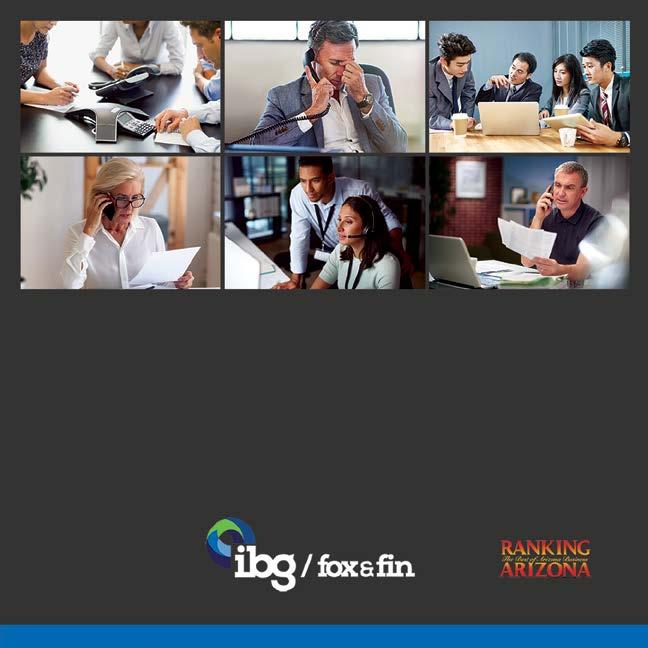






See more: ascpa.com/ondemand
MAY/JUNE 2024 AZ CPA 25
Employee Benefit Plan Roundup:
SECURE 2.0, Department of Labor Audit Quality Study, New Auditing Standards and Audit Requirement Change
By Allisyn Keyser Byrne, CPA
401k plans, 403b plans and other employee benefit options are a great way to enhance or improve existing employee benefits, particularly in an economy in which it is difficult to compete exclusively from a wage perspective. Many employers are finding that their benefits strategy is crucial to continued success and buy-in from employees overall. This article will discuss recent and relevant regulation related to employee benefit plans, as well as other pertinent things to consider when offering an employee benefit plan.
SECURE 2.0: Setting Every Community Up For Retirement Enhancement Act
Originally passed in 2019, with additional enhancements as of December 2022, these provisions are intended to enhance and protect retirement security for Americans. Some provisions are required, while some are not. Additionally, some provisions are already effective, while others take effect in future years (2024 – 2027). Key provisions include:
• Beginning January 1, 2023: Required minimum distributions (RMDs) will now start at age 73, up from age 72. The age increases again in 2033, to age 75. There is now also a decreased penalty for not taking an RMD – 25% of the RMD not taken, when compared to 50% prior to 1/1/2023.
• For calendar year 2023: Existing laws allow for up to $7,500 in catch-up contributions to be made if a person is aged 50 or older. Under the new legislation, employees between 60 and 63 can make a catchup contribution equal to the
greater of $10,000 or 150% of the standard catch-up contribution, starting in 2025. These amounts are subject to inflation adjustments annually, similar to other contribution limits. Additionally, employees who earn $145,000 or more (indexed for inflation) will be required to source their catch-up contributions as Roth contributions, as opposed to pre-tax.
• For plan years beginning after December 31, 2023: Employers are now allowed to add a provision to their plan document to make matching contributions on behalf of their employees making student loan repayments. These contributions would be made in lieu of matching retirement plan contributions.
• For plan years beginning after December 31, 2024: Most employers will be required to automatically enroll employees in their retirement plan at a minimum rate of 3%, but no more than 10%. Default enrollment rates increase by 1% annually after the first year, to at least 10%, but no more than 15%.
• For plan years beginning after December 31, 2024: plan sponsors who employ part-time employees who work between 500 and 999 hours annually will be required to have these employees become eligible to participate in the company’s retirement plan after no more than two consecutive years.
The current waiting period is three years.
Department of Labor Audit Quality Study
As of November 2023, the Office of the Chief Accountant, Employee Benefits Security Administration (EBSA), U.S. Department of Labor, completed its fourth assessment of the quality of audit work performed by independent qualified public accountants.
Overall, EBSA’s review found that a majority (70%) of the audits fully complied with professional auditing standards or had only minor deficiencies under professional standards. However, 30 percent of the audits contained major deficiencies with respect to one or more relevant generally accepted auditing standards
26 AZ CPA MAY/JUNE 2024
requirements. The deficiencies were most common in areas specific to benefit plans; such as participant data, contributions received/receivable and benefit payments.
There is a clear link between the number of employee benefit plan audits a CPA or CPA firm performed and the quality of the audit work. This is to say, firms auditing 100+ plans had a lower failure rate in the study performed. Peer review and practice monitoring efforts do not help identify deficient plan audits. This is because it is possible for a firm to get a passing audit rating overall despite having deficient employee benefit plan audits.
Firms with one to two plan audits decreased from 3,684 to 1,729, now representing 40% of total firms (down from 50%in 2011). On the other hand, firms with 100+ plan audits saw a 46% increase from 2011. Plan sponsors could be selecting audits with one to two plans less frequently, or firms dabbling in this space could have divested from the service.
From an enforcement perspective, the EBSA will continue to focus on:
• CPA firms with smaller employee benefit plan audit practices that audit plans with large amounts of plan assets.
• Annually increasing the number of large benefit practice CPA firms that are reviewed as part of EBSA’s CPA Firm Inspection activities.
• Working with state licensing boards to enhance the investigation and sanctioning process for CPAs or CPA firms that perform significantly deficient audit work.
New Auditing Standards
For plan years beginning on or after December 15, 2023, plan sponsors that are required to have an audit of their benefit plan(s) should expect to see some additional requests from their auditors. This is due to the AICPA issued statements on accounting standards (SAS) 143-145.
• SAS 143 relates to the auditing of accounting estimates and related disclosures. In the context of benefit plans, the most relevant accounting estimates are related to fair value of investments.
• SAS 144 relates to the use of specialists and pricing information obtained from external information sources. If a benefit plan has “complex” investments, it might be necessary to involve a valuation specialist to assist with difficult-to-value plan investments.
AZ CPA Quick Quiz
You’ve
• SAS 145, while not a significant departure from existing standards, supersedes a prior SAS. The main focus of this standard is risks arising from the use of IT, which is prevalent in benefit plans (payroll providers interfacing with custodians/ trustees, etc.).
Change in Audit Requirement
There was a significant change to the Form 5500 series as part of the annual revisions process undertaken by various governing bodies. Specifically, the previous audit requirement of 100+ employees was based on the number of active and eligible employees in the plan, whether or not they actually contributed. The new methodology requires an audit only if a plan has 100+ employees/participants with a balance as of the first day of the plan year. l
Allisyn Keyser Byrne, CPA, is a director of employee benefit plans at CLA (CliftonLarsonAllen). She is an ASCPA member and serves on the ASCPA’s editorial committee.
Earn one hour of CPE credit in specialized knowledge by completing the AZ CPA Quick Quiz, available online. Receive a score of 70 percent or more about this issue’s articles for credit. It’s that easy!
Fees: Members: $25 Nonmembers: $40
Online Access
Go to www.ascpa.com/quickquiz to access links to all active quizzes. Once a quiz is purchased, a link and password will be emailed to you. Your results will be sent immediately after completion, and certificates are emailed within five business days.
Read It, Now Get Credit
MAY/JUNE 2024 AZ CPA 27
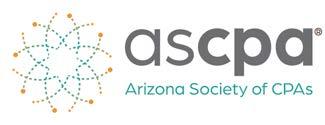
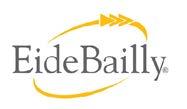

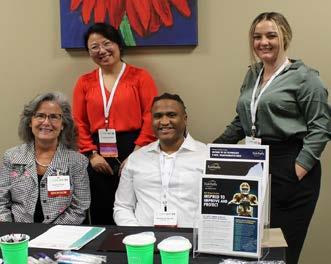


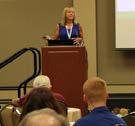


NPC is the learning event of the year for CPAs and professionals working with nonprofit organizations. Expert presenters are ready to bring you up to speed on the latest developments in grants, auditing, political lobbying and risk management. Earn up to 8 credits of CPE in Phoenix, or live online from anywhere. Gold Sponsors: Arizona Tax Credit Funds ·
· CBIZ MHM CLA (CliftonLarsonAllen) · Fester & Chapman · Heinfeld Meech · Your Part-Time Controller Register: ascpa.com/npc FRIDAY, JUNE 21, 2024 24 NOT-FOR-PROFIT CONFERENCE NP Platinum Sponsor Event Provider PRSRT STD U.S. Postage PAID Tucson, Arizona Permit No. 271 410 N. 44th St. Ste 205 Phoenix, AZ 85008
Baker Tilly
























































































































